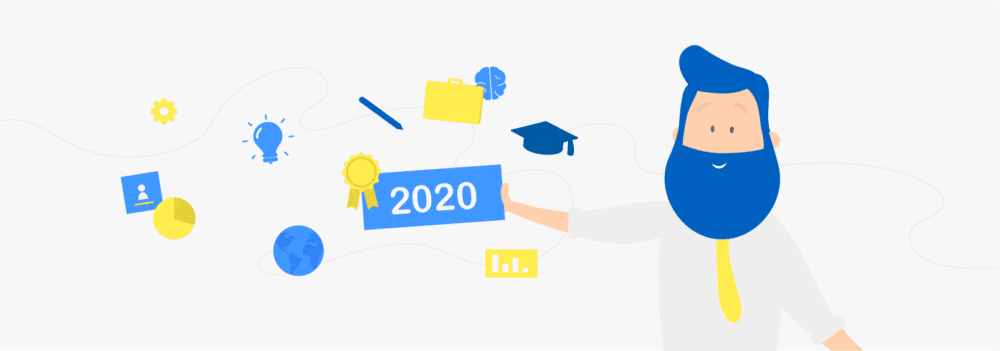Hard skills vs. soft skills: What’s the difference?
In this article we delve into the distinction between hard and soft skills, unraveling their importance and how they shape professional success.

Merely acquiring knowledge and earning qualifications are no longer enough in today’s labor market. Most jobs now demand a broad spectrum of functional and interpersonal skills. We can classify skills as hard and soft.
But what’s the difference? And how do you acquire them?
Let’s take a closer look!
Hard skills vs. soft skills in a nutshellCopied
Hard skills are things you can learn and are easily quantifiable. They focus mainly on a specific task in a specific field. You can demonstrate having acquired a hard skill with a diploma, a certificate, work experience, etc. Hard skills are, therefore, purely professional and technical in nature.
Soft skills are more subjective. It’s not as easy to demonstrate a soft skill based on diplomas or work experience. What’s more, they’re not specific to a task, job, role, or field – they’re more universal by nature. And they’re closely related to a person’s character traits. It’s with good reason that we often describe soft skills as interpersonal skills and think of them as the way in which we interact with others, for example co-workers, customers, and business relations.
What are hard skills?Copied
Hard skills are the technical job requirements needed to successfully perform certain tasks in a professional role. They’re measurable and learnable, for example linguistic, computing, mathematical, or reading skills.
Examples
- Learning one or more foreign languages to become a translator or interpreter.
- Coding and programming to become a software developer.
- Understanding mathematics, economics, and fiscal law to become an accountant.
- Studying flora and fauna to become a biologist or ecologist.
- Mastering a musical instrument to become a professional musician.
Developing hard skills
You can acquire, master, and hone hard skills in several ways. The most common methods for developing this type of skill include:
- traditional education
- online courses, workshops, and training programs
- on‑the‑job training
- books
- experimentation and research
What are soft skills?Copied
Soft skills generally have a more personal character than hard skills. They’re more closely related to personality traits, which is why they’re more difficult to quantify with a score or rating.
Nonetheless, they’re essential in today’s labor market. Soft skills largely determine how someone functions in a team. Having a workforce with a wide range of soft skills is vital to creating a functioning and pleasant working environment.
Examples
- Integrity, punctuality, and reliability help build trust.
- Problem-solving, creativity, and adaptability help create flexibility.
- Good communication skills are essential for sharing knowledge and creating greater understanding.
- Empathy, collegiality, and team spirit help people create partnerships and work together.
Developing soft skills
Soft skills are formed at a young age and form part of someone’s personality. It’s, therefore, harder to develop a soft skill if someone doesn’t have a particular skill.
Nonetheless, there are still ways to acquire them. Examples include:
- assertiveness training for shy employees
- communications training for employees who experience difficulty expressing themselves either verbally or in writing

Key skills for 2020Copied
So, what are the key skills on the labor market in 2020? The ideal profile is a well-balanced mix of hard and soft skills.
Essential hard skills most commonly mentioned include data literacy and the skills required to use modern technologies – a logical combination given that data is viewed as the fuel for the fourth industrial revolution currently unfolding. And digitalization as a whole is also playing an ever-greater role in society and day-to-day life, for example AI, machine learning, blockchain, IoT, and robot automation.
Important soft skills are an ability to think critically (for selecting, interpreting, and using data), to make complex decisions, and to adapt to changing circumstances (innovation, technologies, markets), as well as flexibility, creativity, emotional intelligence, teamwork, leadership, cultural intelligence, and diversity. Multicultural skills are increasingly vital, as the world is becoming a global village and a universal marketplace.
Keeping track of skillsCopied
Naturally, you’ll want to know which hard and soft skills exist within your organization. Recording them in a skills matrix is the best way to get a clearer picture.
AG5’s skills management software allows you to record and keep track of your workforce’s skills and professional development. It also provides numerous features for boosting your productivity and creating greater transparency.
- Visualize which skills you have within your organization. And keep track of both soft and hard skills.
- Drag ’n’ drop to replicate your organizational structure and to map and link your staff to skills, qualifications, and personality traits.
- Search for the best replacement for an employee off sick.
- Update skills and enter training results from the shop floor.
- Put together a “kickass” team for a specific project based on expertise and experience.
All this thanks to AG5’s software.
Drop us a line or schedule a demo to find out more about AG5’s skills management software.

